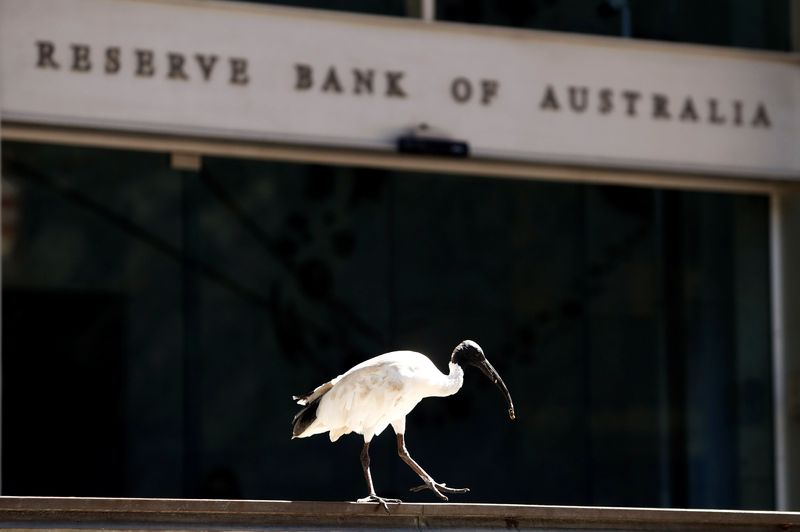By Devayani Sathyan
BENGALURU (Reuters) - Australia's central bank will likely deliver a 25 basis point interest rate increase on Aug. 1 following a pause on Tuesday according to economists in a snap Reuters poll who were split on when and where the cost of borrowing would peak.
The Reserve Bank of Australia (RBA) decided to pause again this week after two 25 basis points hikes at its May and June meetings, leaving analysts and market traders guessing on what to expect next.
The RBA began tightening policy in May 2022 and had raised rates at every meeting since, other than a pause in April. But it left them unchanged again on July 4 to assess the economic impact of its increases.
Inflation slowed to 5.6% on a monthly basis in May from 6.8%, well above the 2.0% target. Along with a still-strong job market and a rebound in house prices, expectations have strengthened for a rate increase at the August meeting.
Detailed quarterly inflation data is due on July 26, just days before that meeting.
More than 90% of respondents, 23 of 25, in a July 4-5 poll expected the RBA to increase its official cash rate by 25 basis points to 4.35% at the Aug. 1 meeting.
"We suspect that the coming forecast update from the RBA staff will likely tip the balance in favour of an August rate hike. The timing of a follow-up move is uncertain, but we'd favour September or October," said Adam Boyton, head of Australian economics at ANZ.
Boyton said he expected a peak cash rate of 4.60% but the outlook was uncertain following the central bank's recent pause.
All major domestic banks, ANZ, CBA, NAB and Westpac forecast a quarter-point increase in August.
However, there was no consensus among economists on when and where rates would peak in this cycle.
More than 45% of respondents, 10 of 22, expected the central bank to raise rates once more in September, taking rates to 4.60% by the end of this quarter. The other 12 said rates would stay at 4.35%.

Of those who had a longer-term view, 11 out of 20 of them expected rates to peak at 4.60% or higher by end-2023, largely in line with market pricing.
"Given this pause looks to be more around slowing the pace of tightening than a shift in the view of what is ultimately required, we retain our view of two more hikes and a 4.60% terminal rate," said Chris Read, Australia economist at Morgan Stanley (NYSE:MS).